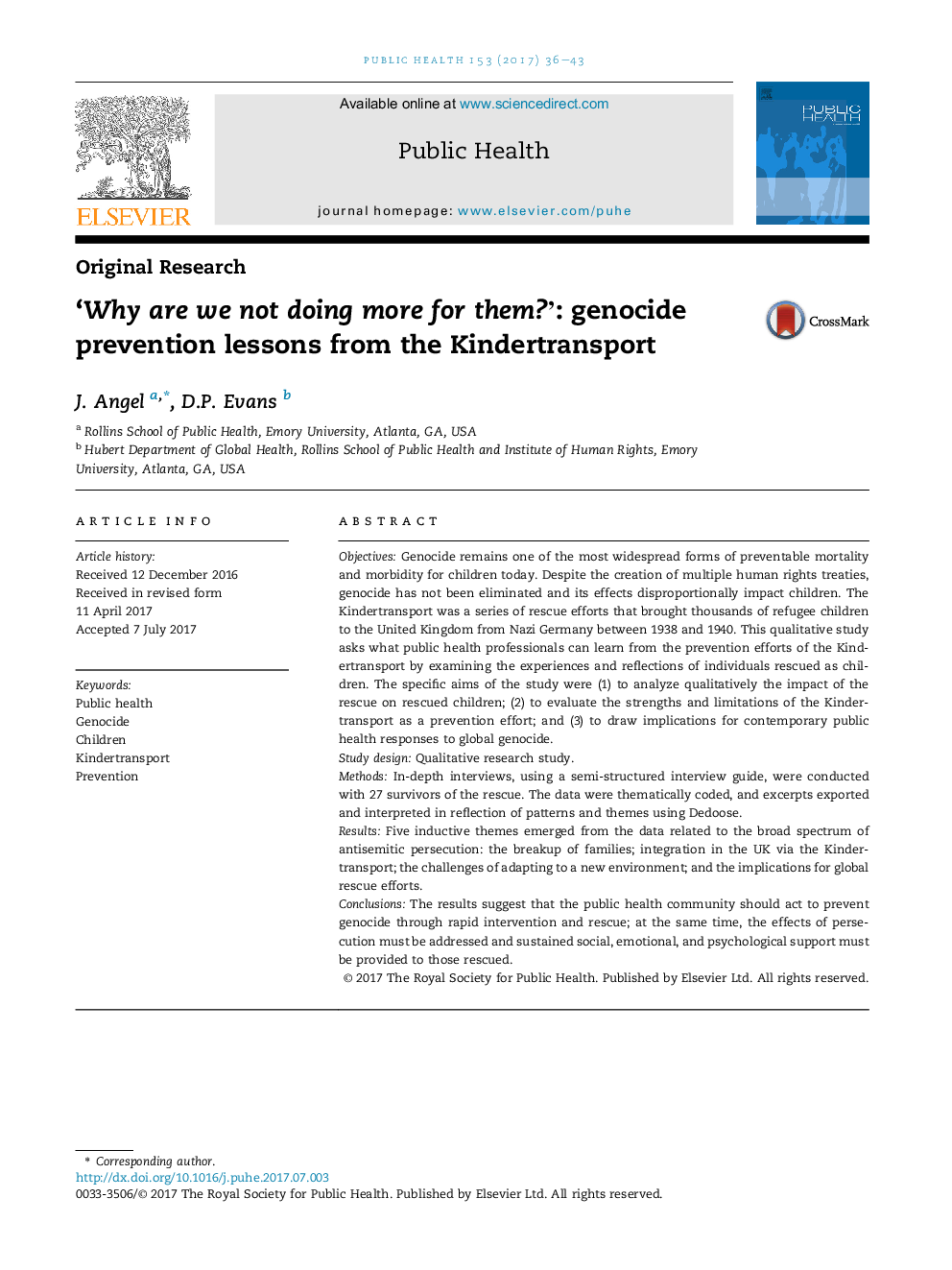| کد مقاله | کد نشریه | سال انتشار | مقاله انگلیسی | نسخه تمام متن |
|---|---|---|---|---|
| 5122645 | 1487190 | 2017 | 8 صفحه PDF | دانلود رایگان |

- Antisemitic persecution came from individual, institutional, and legal sources.
- Family breakup before, during, and after the Kindertransport had a lifelong impact on the participants.
- New homes in the UK were described as kind, indifferent, exploitive, and selfless.
- The psychological ramifications of genocide survival and adaptation were pervasive.
- Nearly all of the participants felt we have not learned from the past.
ObjectivesGenocide remains one of the most widespread forms of preventable mortality and morbidity for children today. Despite the creation of multiple human rights treaties, genocide has not been eliminated and its effects disproportionally impact children. The Kindertransport was a series of rescue efforts that brought thousands of refugee children to the United Kingdom from Nazi Germany between 1938 and 1940. This qualitative study asks what public health professionals can learn from the prevention efforts of the Kindertransport by examining the experiences and reflections of individuals rescued as children. The specific aims of the study were (1) to analyze qualitatively the impact of the rescue on rescued children; (2) to evaluate the strengths and limitations of the Kindertransport as a prevention effort; and (3) to draw implications for contemporary public health responses to global genocide.Study designQualitative research study.MethodsIn-depth interviews, using a semi-structured interview guide, were conducted with 27 survivors of the rescue. The data were thematically coded, and excerpts exported and interpreted in reflection of patterns and themes using Dedoose.ResultsFive inductive themes emerged from the data related to the broad spectrum of antisemitic persecution: the breakup of families; integration in the UK via the Kindertransport; the challenges of adapting to a new environment; and the implications for global rescue efforts.ConclusionsThe results suggest that the public health community should act to prevent genocide through rapid intervention and rescue; at the same time, the effects of persecution must be addressed and sustained social, emotional, and psychological support must be provided to those rescued.
Journal: Public Health - Volume 153, December 2017, Pages 36-43